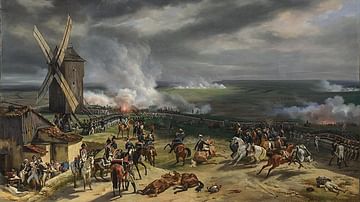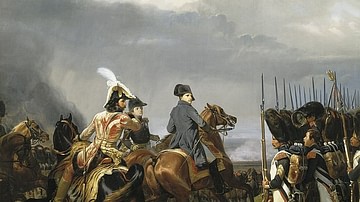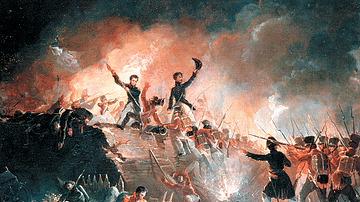Search
Search Results

Definition
Battle of Valmy
The Battle of Valmy was a stunning French victory over a Prussian-led coalition army on 20 September 1792, during the French Revolutionary Wars (1792-1802). Although the battle was little more than a skirmish, it halted the coalition's invasion...

Video
The 5 Most DARING Escapes From Enslavement | #blackhistorymonth
While many enslaved people rescued themselves and their families by escaping the horrific institution of slavery, some were so daring that they became beacons of hope, and legends in their own lifetimes. These are the most bold and audacious...

Definition
William Still - Father of the Underground Railroad
William Still (1819-1902) was an African American abolitionist known as the "Father of the Underground Railroad" for his efforts in helping to free between 600 to 800 people from slavery. Born the son of formerly enslaved parents, Still devoted...

Definition
Underground Railroad - Pathways to Freedom
The Underground Railroad was a decentralized network of White abolitionists, free Blacks, former slaves, Mexicans, Native Americans, and others opposing slavery in the United States who established secret routes and havens to help slaves...

Definition
George III of Great Britain
George III of Great Britain (r. 1760-1820) was the third of the Hanoverian monarchs, and he remains the longest-reigning king in British history. His six decades on the throne saw the creation of the United Kingdom, the loss of the 13 American...

Definition
Declaration of Pillnitz
The Declaration of Pillnitz was a joint statement issued on 27 August 1791 by Leopold II, Holy Roman Emperor (r. 1790-1792) and King Frederick William II of Prussia (r. 1786-1797). The declaration appealed to all European powers to unite...

Article
Battle of Jena-Auerstedt
The twin battles of Jena and Auerstedt, both fought on 14 October 1806, marked a major turning point in the Napoleonic Wars (1803-1815). It saw the French Grande Armée, led by Emperor Napoleon I (r. 1804-1814; 1815) soundly defeat the Prussian...

Article
Siege of Fort Erie
The Siege of Fort Erie (4 August to 21 September 1814) was one of the last major military operations of the War of 1812. Following the bloody Battle of Lundy's Lane, a US army retreated into Fort Erie, where it was soon besieged by a British...

Definition
War of the Fourth Coalition
The War of the Fourth Coalition (October 1806 to June 1807) was a major conflict during the Napoleonic Wars (1803-1815). The Fourth Coalition consisted of Russia, Prussia, Saxony, Sweden, and the United Kingdom, against the First French Empire...

Definition
Lear Green - Escaping Slavery in a Chest
Lear Green (circa 1839-1860) was an enslaved African American woman in Baltimore, Maryland, who had herself shipped in a chest to Philadelphia, Pennsylvania, to escape slavery. Her story is frequently compared to that of Henry Box Brown (circa...